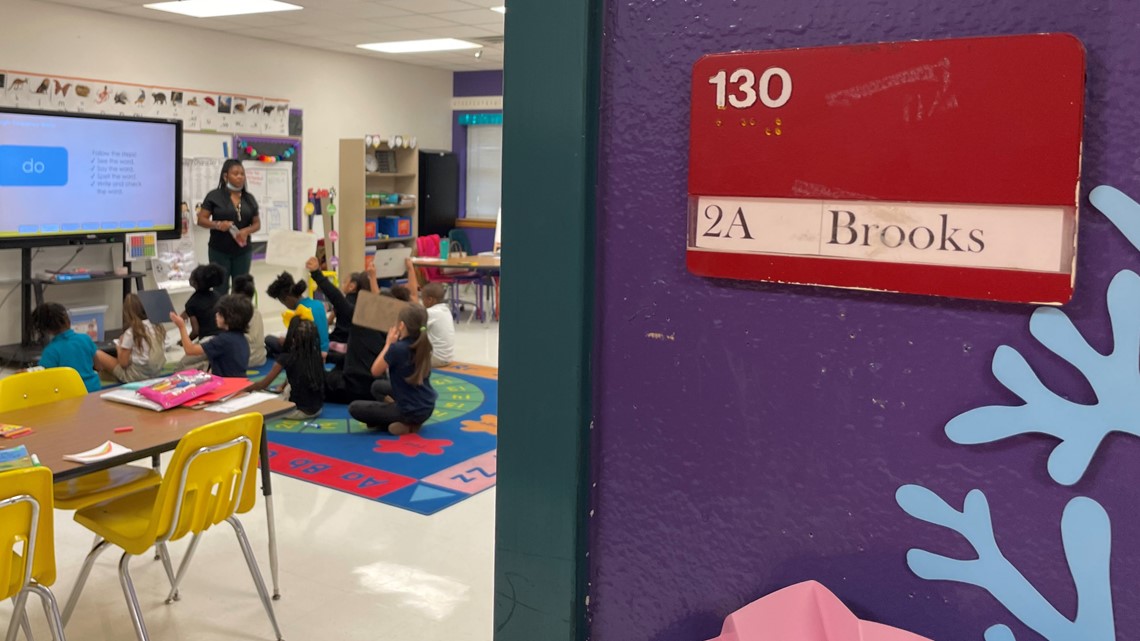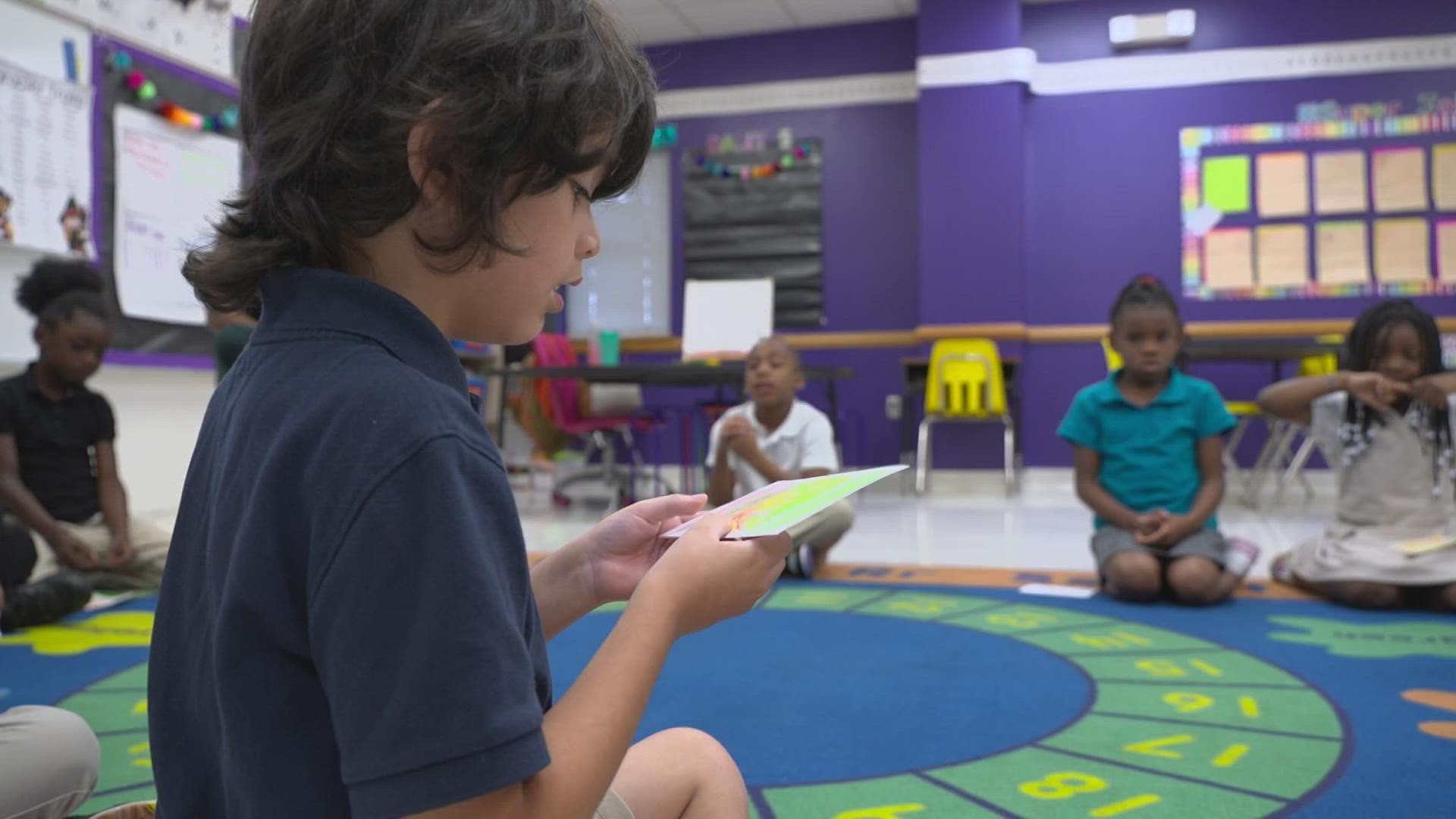DALLAS — Every day begins with a morning meeting.
But there are no spreadsheets to review, sales goals to discuss or coffee to drink.
Much like an office huddles together to plan their day, classrooms at Cesar Chavez Learning Center come together to breathe.
“I have never missed a morning meeting,” said second grade teacher Kenedra Brooks.
"It’s all about setting a tone for the classroom. It gives kids a chance to let go of everything and realize, I’m in my classroom, it’s a safe space, I’m here to learn," she added.
For 15 minutes on a recent Thursday morning, Brooks and her students started their day discussing what makes butterflies and rainbows unique.
Then they shared what makes each of them special.
They spent a few minutes drawing.


And ended it all with breathing exercise.
They call it rainbow breathing.
The Cesar Chavez campus is a safe space in what is sometimes a tough place.
Just northeast of downtown Dallas, 95% of students here live in poverty and crime is close.
“We’ve lost a couple of children to gun violence at Chavez and that’s lasting trauma,” said principal Kelly Brennion.
Teachers at Chavez know students don’t always arrive each day feeling safe, so they have to teach that feeling scared and mad and sad is normal.
But coping with those feelings is normal, too.
“In the moment when you’re feeling frustrated, you’ve practiced rainbow breathing and you can come back and center yourself and calm down. Your brain can function, and you can make reasonable decisions and work through a problem,” Brennion explained.
The focus on social emotional learning appears to be working.
Fifth grader Lei’lah Selton said she knows what to do when she’s frustrated.


“I’ll ask the teacher if I can take a breather. It makes me relax my mind,” she said.
When she sees classmates who seem overwhelmed, she checks on them.
“I'd tell them to take a breather. Go wash their face. Drink some water,” she said.
Ninety-three percent of students at Cesar Chavez have reached their goal for growth on the State of Texas Assessments of Academic Readiness, or STAAR, exam, said Brennion.
"That tells us that everything we’re doing right -- from morning meeting to academics -- is putting children on the pathway to success," Brennion said.
The campus is not working alone.
The nonprofit United to Learn is helping them invest in emotional wellness, offering trainings, helping teachers buy supplies and even installing new markings on floors to encourage kids to tiptoe, jump and hopscotch through the halls.
“You cannot achieve 93% growth in anything without you feeling well taken care of and cared for,” said Sheryl Collins, chief program officer at United to Learn. Collins was once Chavez’s principal.


In Brooks' 2-A classroom, the morning meeting proves its worth every day.
“I try to make it where in the classroom they believe in themselves and start building that self-esteem,” Brooks said.
"It transfers over to reading and math because they’re able to believe they can do the work, but it all starts with that safe environment," she said.
Lessons from a 15-minute meeting will hopefully last a lifetime.

